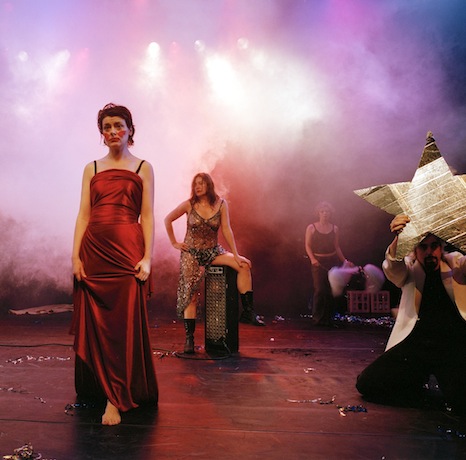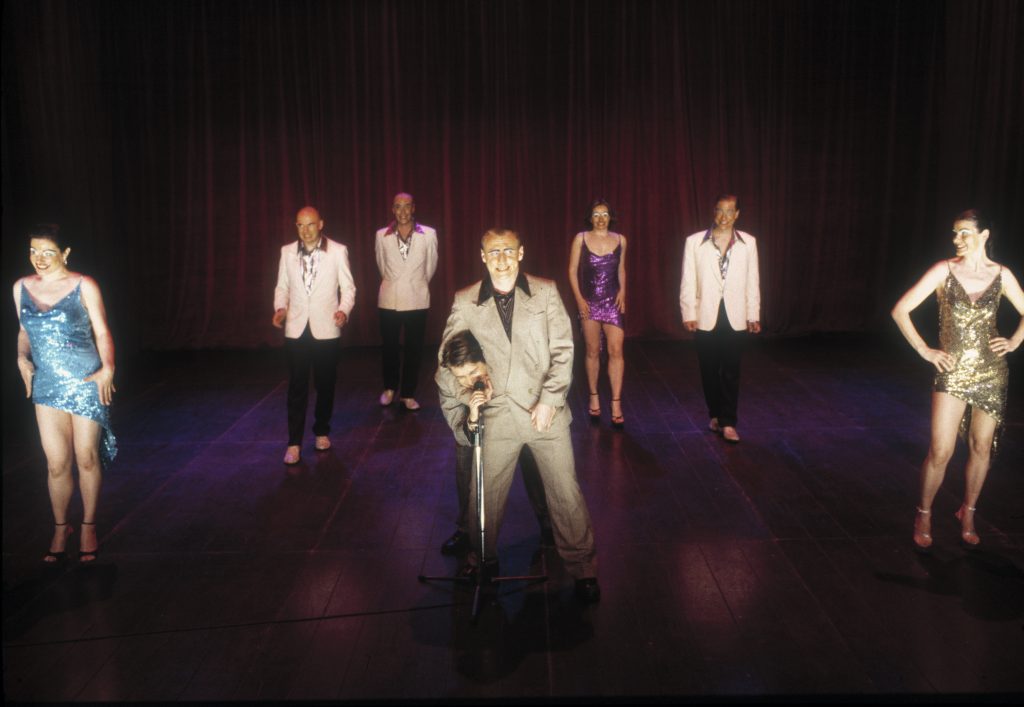Suggested Donation
This is an extract from an interview with Tim Etchells, Artistic Director of Forced Entertainment – read the full interview here.
My first thought is that I don’t have any! We make things by doing them. Our capacity to imagine in advance any of the things that we have made is extremely limited. Mostly what happens in the rehearsal process is that I will make a proposition or a set of propositions and something will happen in the space in response – improvisation, investigation through action. The responses also include the performer’s creative mishearing of what I’ve asked them to do. So it always, in any case, exceeds our ‘ideas’. In any process I’d say ninety per cent of what we do is trash but maybe ten per cent, if we’re lucky, is worth hanging on to. That’s how the work emerges. I’m very interested in this idea that the work comes from being in a room with people who are doing things – it doesn’t come from me sitting down at home and writing it – it doesn’t come from anybody drawing it – it comes from being in a room with bodies and action, argument, conversation and doing. It’s social. It’s material. It’s tangible. Text in our pieces tends to grow this same way too. There are a few of the performances here and there, where there’s been a basis in writing, but mostly text comes out of the room, it doesn’t get made separately.
We have a big habit of using found things, i.e. when you see Forced Entertainment’s work it’s not a question of “Oh my Lord, I would never have thought that such a thing was possible!” It much more like, “Oh my god, they’re doing that, I’ve seen that already so many times!” So Real Magic enacts a fragment of some very bad game show or cabaret routine and even if you haven’t seen it, you feel like you have. It’s generic. Off the peg. Very often, in the work, there’s a sort of redundancy, almost a lack of imagination at one level. I’m aware that in one sense we always want to do the most unimaginative and boring thing, not the radical, flight of fancy image. That sense of limit is really important in the work, it’s not orgiastic, free self-expression. The work is made in relation to our culture that’s already full of images and actions and we’re often picking them up and trying to animate them. There’s a limit, a language, a set of givens that we are negotiating.
If I’m teaching writing, I meet a lot of people who are obsessed with the idea that it’s about expressing themselves in a language that comes from themselves, i.e. writing is a kind of internal, deep sea diving process. By contrast I think of writing, at least in good part, as a process of repeating, echoing, speaking and passing through voices that come from other places. I think about the way that, when you speak, it’s hard to speak without your parents speaking through you, without your teachers speaking through you, without the movies that you’ve watched or the computer games that you’ve played speaking through you, without your friends speaking through you, without all the crap you’ve watched on television or the internet speaking through you. I have a sense of the person as a meeting point of other signals rather than just ‘themselves’ – my voice is mine, but it’s also a kind of switching station.


